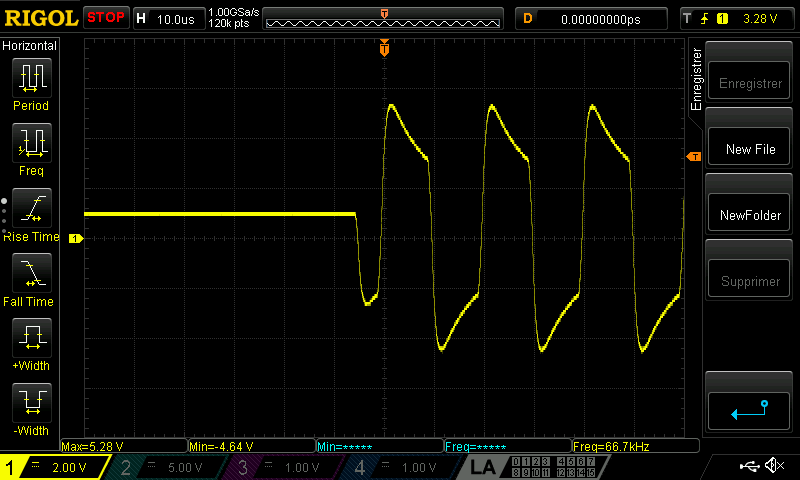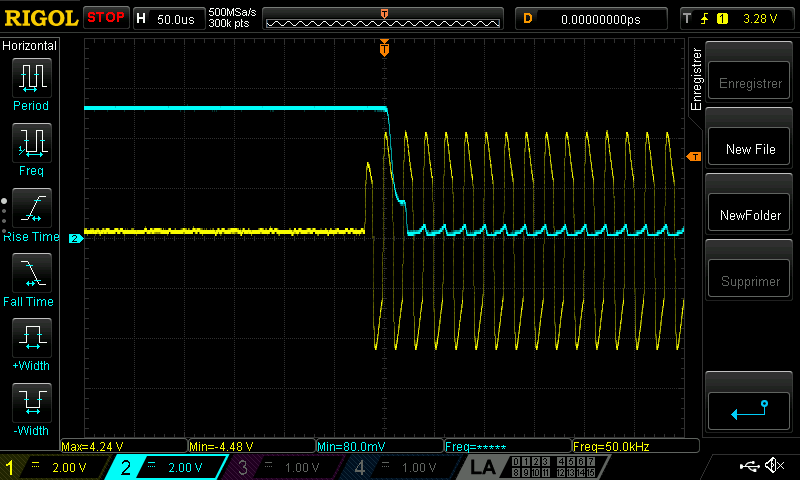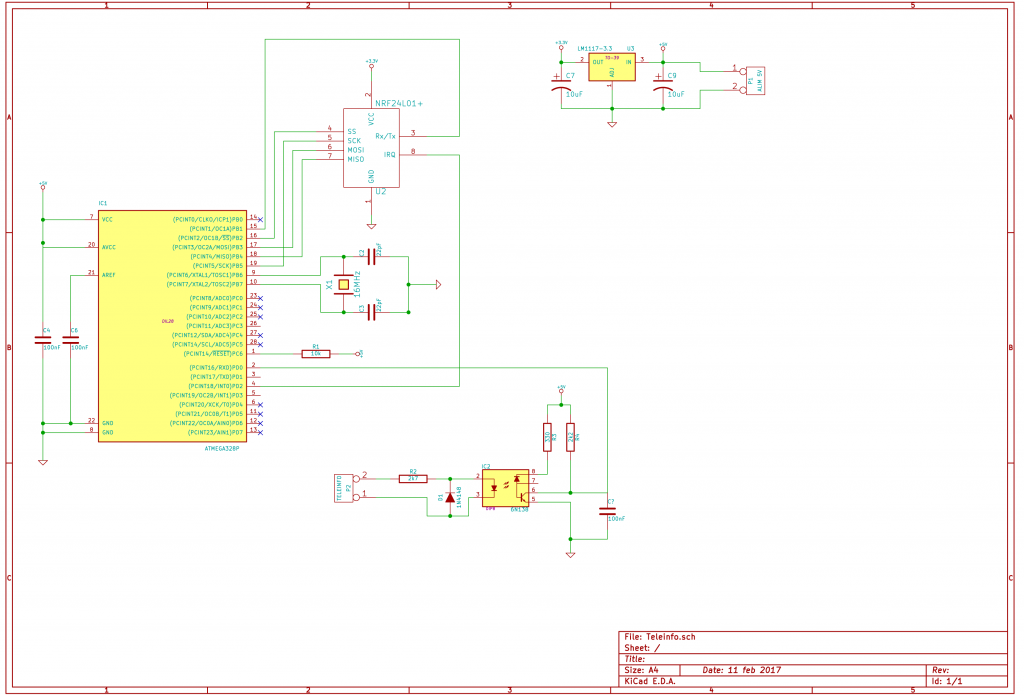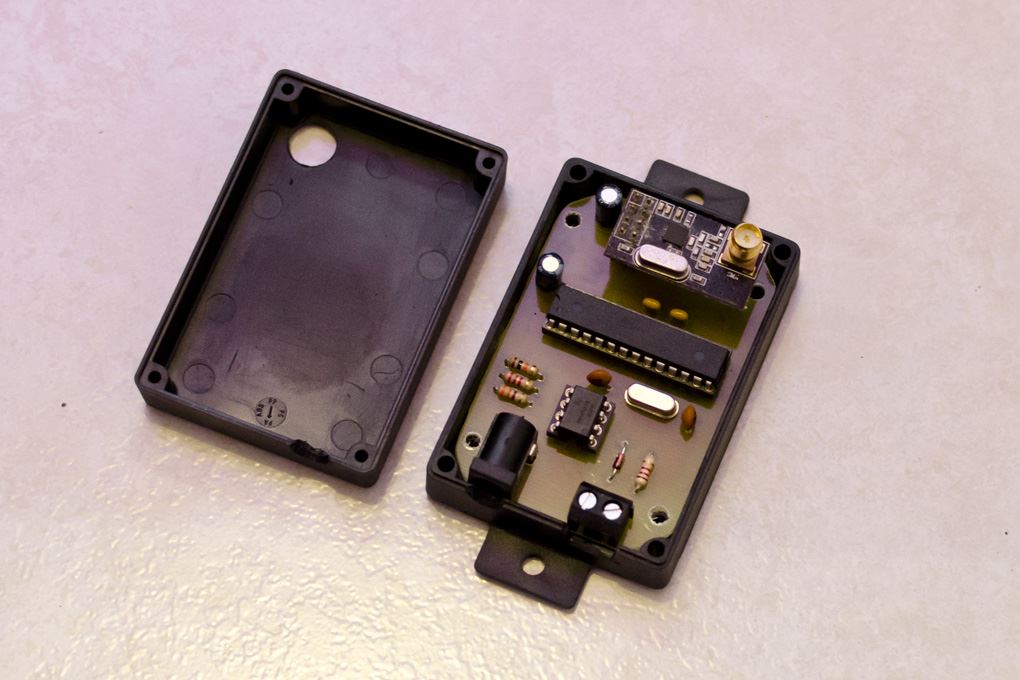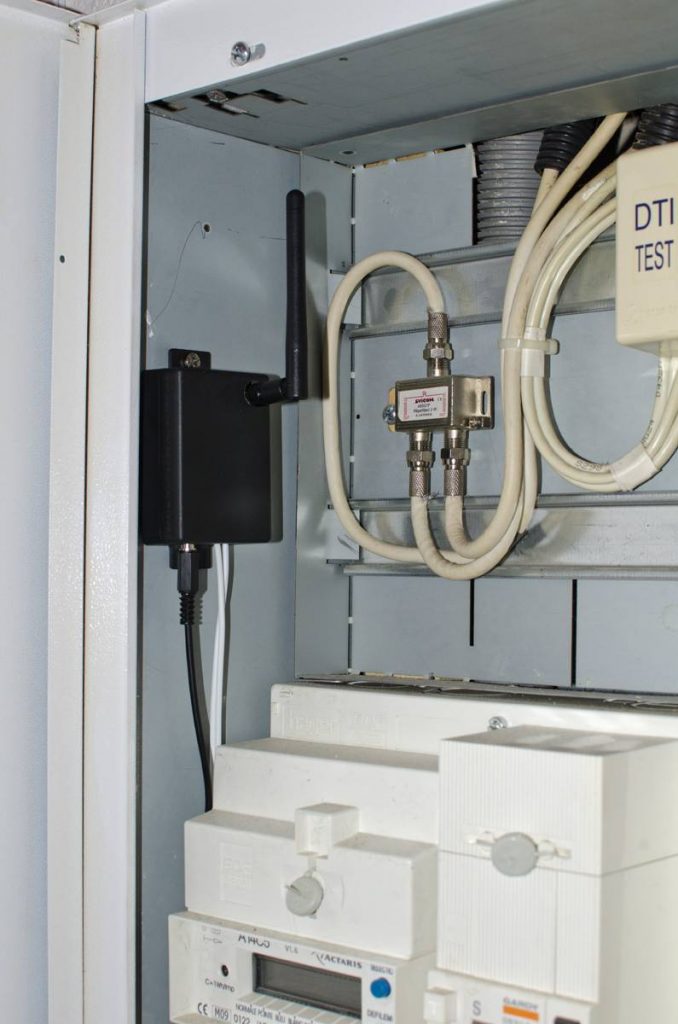Transformation du signal
Comme on a vu dans la partie 1, le signal est composé d’une porteuse à 50kHz présente pour représenter un 0 et absente pour représenter un 1.
Détail de la trame téléinfo Il va d’abord falloir convertir ce signal en vrai trame série avec les mêmes paramètres de transmission, à savoir 1200 7E1 (1200 baud, 7bits, parité paire, 1 bit de stop).
Trame téléinfo en jaune et trame décodée en bleu Zoom sur la trame décodée
Le schéma
Schéma de l’émetteur téléinfo A la base, le circuit est fait pour tourner sur un Atmega328p seul, sans être un arduino. Le circuit est alimenté avec un chargeur de téléphone portable sous 5V. Le bloc du bas basé sur un optocoupleur 6N138 permet de convertir le signal téléinfo en signal TTL compréhensible par l’uart de l’Atmega. Si on utilise un arduino, la partie conversion 5V vers 3.3V ainsi que la partie horloge (le quartz et ses deux condensateurs) sont inutiles car intégrées à l’arduino.
Le programme
Le programme est prévu pour une installation avec heures creuses et heures pleines (HCHC et HCHP). Pour d’autres types de contrat (Base ou Tempo) il est nécessaire de le modifier.
#include <nRF24L01.h>
Installation
